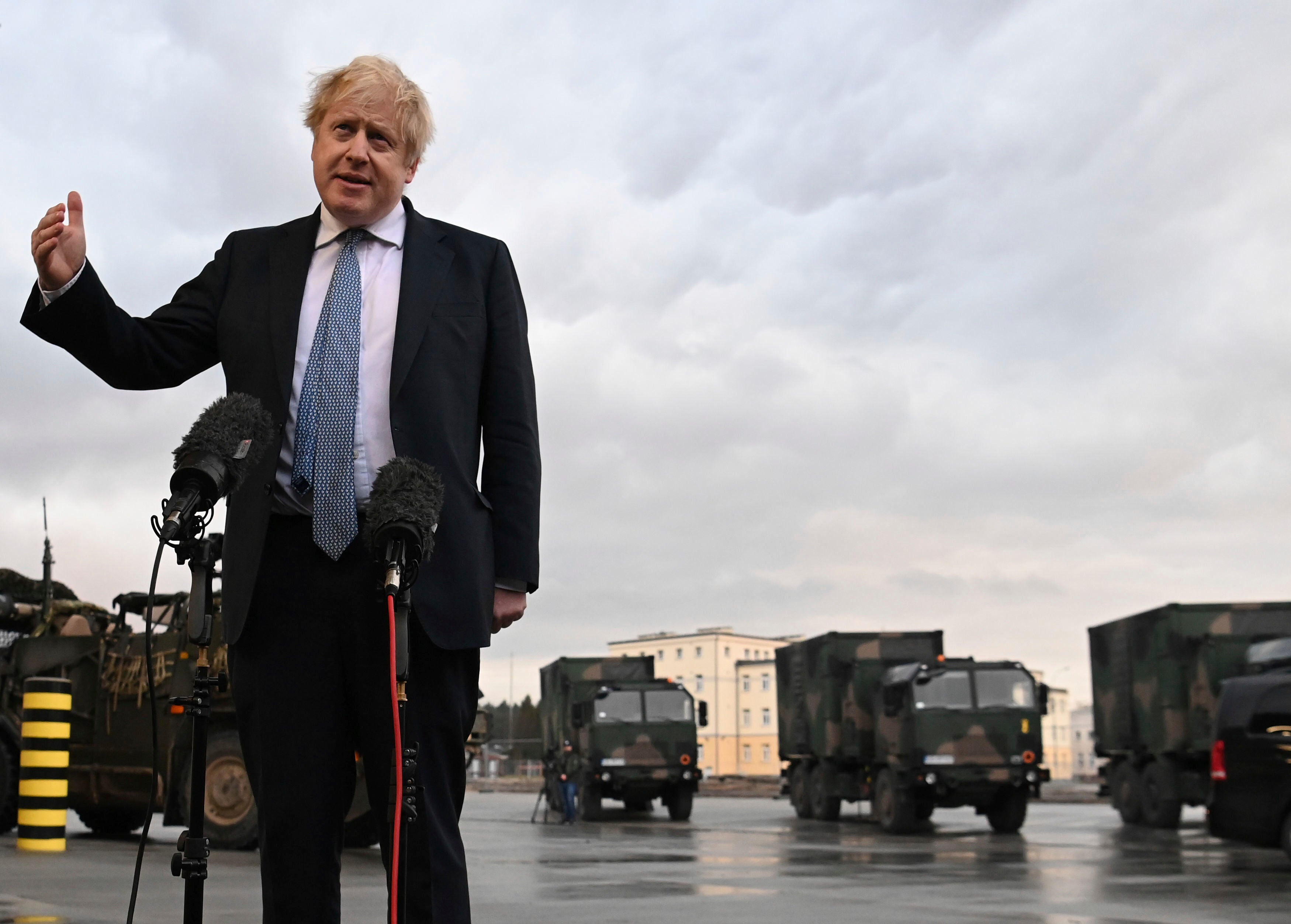Could British troops be caught up in the Ukraine crisis?
The UK soldiers currently on standby would be used to bolster Nato’s presence in eastern Europe, writes Andrew Woodcock


As the UK withdraws all troops from Ukraine, the country’s ambassador in London has pleaded for Nato to deploy forces in the country. Vadym Prystaiko’s call was echoed by senior Conservative MP Tobias Ellwood, the chair of the Defence Select Committee, who said it was the only effective way to deter Vladimir Putin from sending his forces over the border.
Only a handful of British military personnel are currently posted in the eastern European country on training missions for Operation Orbital, which was launched in 2015 in response to Russia’s illegal annexation of Ukrainian region, Crimea.
The Ministry of Defence said their work there has included training in basic infantry, medic skills and courses to counter attacks from snipers, armoured vehicles and mortars. Around 30 elite troops were deployed in January to train Ukraine’s military in the use of 2,000 anti-tank missiles supplied by the UK.
But ministers have made it clear that Britain will not send combat troops to Ukraine, even though more than 1,000 are posted in countries like Estonia and Poland and another 1,000 are on standby to travel to the region.
The crucial difference between those countries and Ukraine is of course Nato membership. Under Article 5 of the North Atlantic Treaty – which Poland signed in 1999 and Estonia signed in 2004 – an attack on one member state in Europe or North America is treated as an attack on all, effectively extending the protective umbrella of US, British and French firepower over countries unable to resist Russian military pressure alone.
To make that promise concrete, Nato allies have conducted rotating operations in the Baltic states, while the US has deployed troops in Poland and Romania. Putin regards the extension of the western military alliance into areas once part of the Russian sphere of influence as a national humiliation. He has vociferously opposed a process, agreed by Nato members in Madrid in 1997, of intensified dialogue with countries aspiring to membership, insisting that Georgia and Ukraine must never be allowed to join.
Though Nato heads of government declared in 2008 that these two former Soviet states will one day be members, Ukraine is unlikely to join any time soon. France and Germany strongly oppose any acceleration of the process, and there are wider concerns about the need for reform in Kiev before membership can be considered.
This has not prevented Putin from calling Ukrainian Nato membership an imminent threat. He has said he believes Russia has a legitimate claim on large swathes of the country’s territory, and last year published a belligerent essay arguing that Russians and Ukrainians are effectively one people.
Any significant deployment of western troops on Ukrainian soil would add fuel to Putin’s drive to convince Russians they are under threat from an aggressively expanding Nato. Instead, any incursion ordered by Putin is likely to be met by imposing sanctions on Russia, the president and his inner circle, as well as the supply of military equipment and financial support to Kiev.
The 1,000 UK troops currently on standby would be used to bolster Nato’s presence in eastern Europe and more could be expected to follow. Deployments of this kind can even be ordered by the prime minister without parliamentary approval. But any significant involvement in combat is likely to require a vote in the House of Commons.
Although committing troops to military action is a prerogative power of the prime minister, Tony Blair’s decision to put war in Iraq to a vote in 2003 created a precedent which David Cameron followed before sending troops to join airstrikes on Libya in 2011. In the same year, the government acknowledged that there was now a convention that MPs should have the opportunity to debate involvement in military action before the shooting starts, which would be observed except in emergencies.



Join our commenting forum
Join thought-provoking conversations, follow other Independent readers and see their replies
Comments